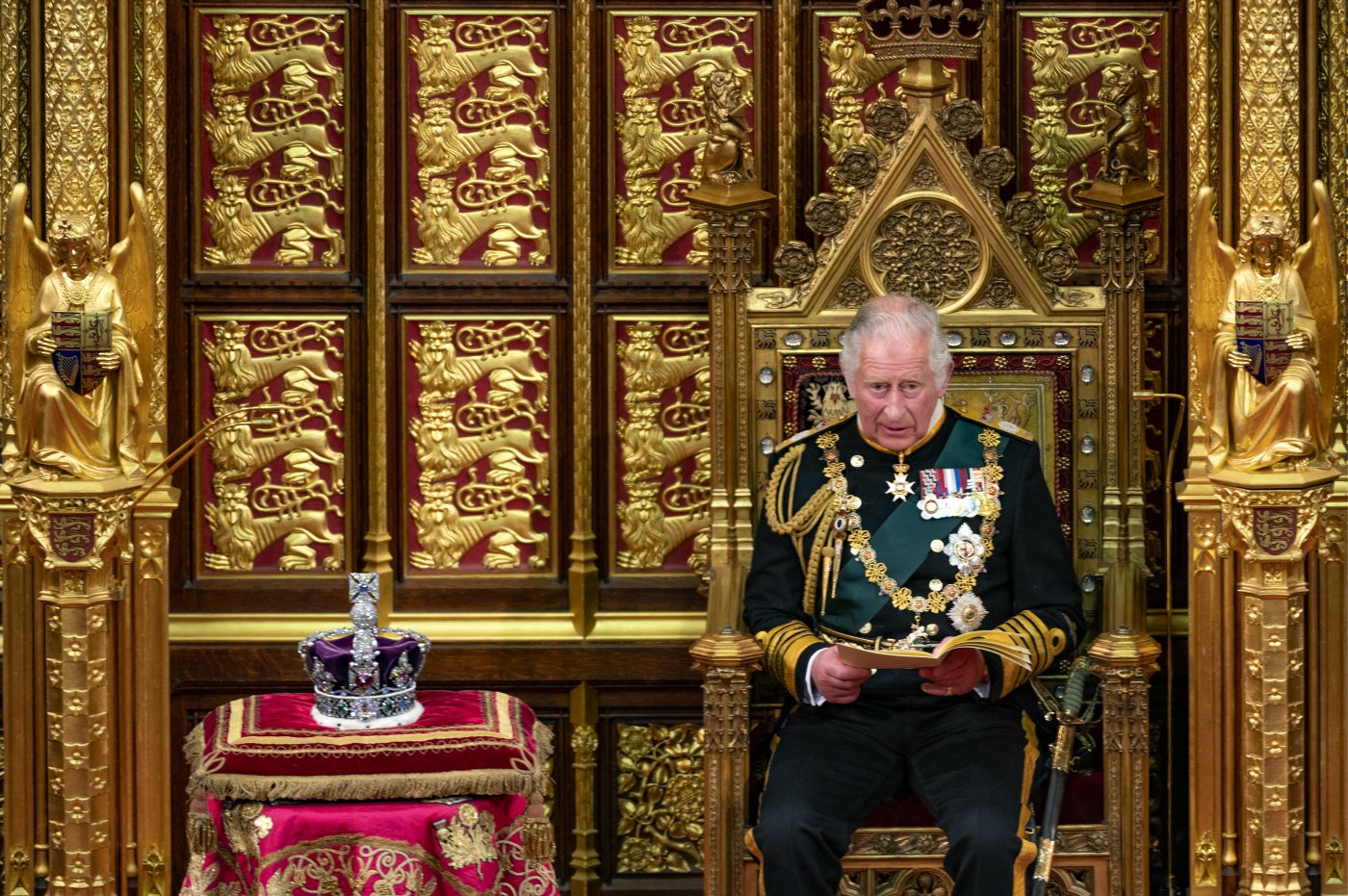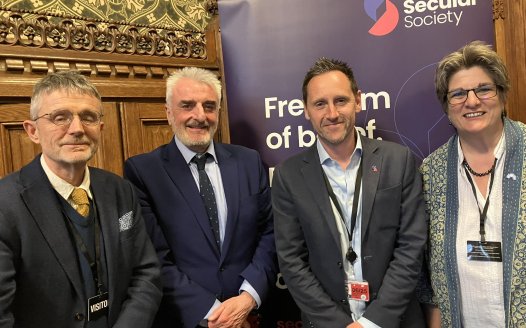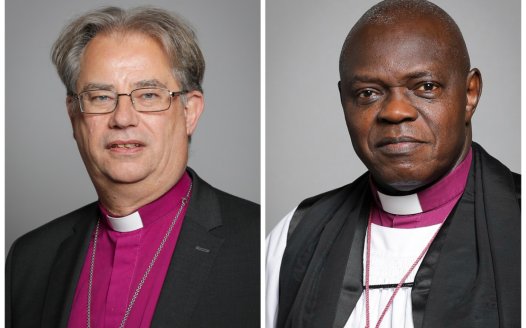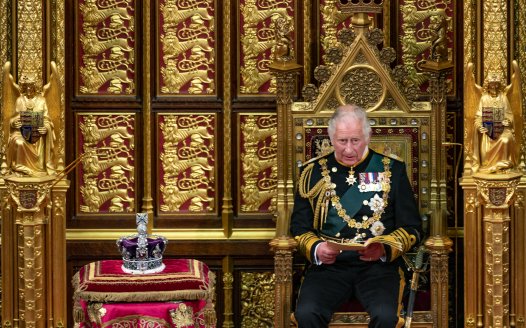Our head of state should not have constitutional ties with religion
Posted: Tue, 27th Sep 2022 by Stephen Evans
As King Charles assumes the title of Defender of the Faith, Stephen Evans argues that the role of head of state in a modern democracy should have no constitutional ties to religion.
In his first address to the nation as monarch, King Charles said he would endeavour to serve all his subjects whatever their "background or beliefs" with loyalty, respect and love.
It would be easier to give credence to the sincerity of this statement if our head of state didn't also assume the dual role of head of the Church of England.
Upon the death of Queen Elizabeth, King Charles immediately became the Church's Supreme Governor and "Defender of the Faith". For the avoidance of doubt, that faith is the "one true protestant faith".
His coronation in Westminster Abbey next year will be a deeply religious affair. He will be anointed with holy oil, blessed, and consecrated by the archbishop of Canterbury. Holy Communion will be celebrated.
Ours is the only monarch left in Europe still crowned in a religious ceremony. All others have abandoned coronations or replaced them with simpler ceremonies to mark an accession.
A religious coronation is a peculiar way to inaugurate a head of state in one of the least religious countries on Earth. The UK's religious landscape has changed out of all recognition since the last coronation in 1953. We now have a non-religious majority and a significant proportion of citizens who follow non-Christian religions.
Many of them will feel alienated by a ceremony purporting to legitimise a new head of state where he pledges to protect the privileges and doctrine of a church they don't belong to. And let's not forget, the doctrine King Charles will swear an oath to preserve asserts that gay sex is a sin, and that same-sex marriage is illegitimate.
It is also a Church that represents just one UK country whose weekly attendance is only one per cent of the UK population.
We expect our monarchs to remain strictly neutral with respect to political matters. So why the double standard when it comes to religion?
Is it really appropriate for the UK prime minister to have a weekly meeting with the Supreme Governor of the Church of England to discuss government matters? With Anglicanism so deeply entrenched in our constitution it's hardly surprising that religious privilege runs through Britain like the letters in a stick of Blackpool rock.
King Charles has made clear his intention to be a defender of faith generally, not only the faith. This fits with the role the Church of England has assumed for itself as a means by which other denominations and faith communities can be elevated in public life.
It's not clear to what extent members of other faiths are content to ride on the coattails of the Anglican establishment. But clearly many faith leaders enjoy the enhanced status granted by the Church of England holding the door open for them. Humanists may on occasion be invited along, but ultimately, the favouritism shown to the Church of England, with 'crumbs from the table' for other religious groups, demeans minority faiths and almost entirely neglects and disenfranchises the nonreligious and religiously unconcerned majority.
Both the late Queen Elizabeth and King Charles have been advocates for religious freedom. They have nevertheless seemed unconcerned that the role of head of state in our democracy is reserved exclusively for practising Christians. The monarchy's religious role is underpinned by an assumption that all future monarchs will be believing Anglicans – indeed, the constitution prevents Catholics from becoming the monarch. How is this compatible with concepts of fairness or freedom of religion or belief?
The accession of a new King will inevitably raise questions about the relevance of monarchy in a modern democracy. After all, inherited power and privilege by virtue of birth is an affront to everything modern Britain claims to stand for.
Turning a blind eye to a morally unjustifiable institution at the heart of our constitution, which claims a 'divine right' to rule over the rest of us, can't be good for our national psyche. Nor can cleaving to our past in the absence of any confidence in our ability to carve out a democratic future.
It will therefore be interesting to see the extent to which apparent support for the monarchy has been tied up with an admiration and respect for Queen Elizabeth. But for as long as the monarchy remains, it is right and reasonable to initiate reforms to ensure our head of state has no constitutional entanglement with religion.
There is clearly a fondness both at home and overseas for our costumed British pageantry. As the Queen's state funeral demonstrated, it's something we do well. But concepts of nationhood and citizenship are too important to centre around an anachronism.
If we want those living within these isles, irrespective of creed, colour or belief, to buy into Britishness and feel part of a cohesive collective, our national identity must be meaningful and inclusive. It too often feels like a pretence, cherished by some, but alienating to others. Even our religious and monarchical national anthem, God Save the King, is exclusionary, lacking meaningfulness for nonbelievers and republicans.
A constitutional settlement based on Anglican supremacism is a non-starter for a country that aspires to be a beacon of freedom and equality. It's time we had a serious debate about the kind of country we want to be.
A version of this article was originally published by The Independent.
Secular Head of State
Our head of state shouldn't have any constitutional entanglement with religion. Join our campaign for a secular head of state.









